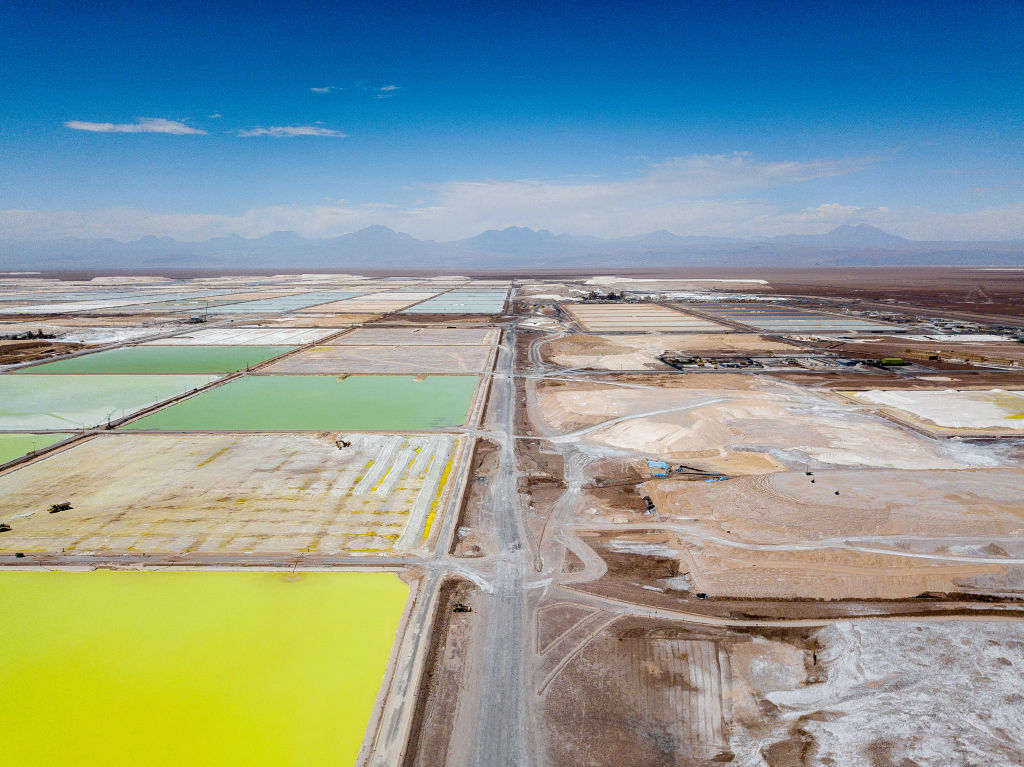Chile, Latin America, and the Changing Global Scenario
Chile, Latin America, and the Changing Global Scenario
At a time of global economic challenges such as rising energy prices and inflation growth, AS/COA brought together public and private sector leaders for its annual conference in Santiago de Chile on August 6. Speakers emphasized Chile's ability to attract foreign investment but warned of inflation risks.
Speakers
- Andrés Velasco, Minister of Finance
- Mateo Budinich, President, AmCham Chile
- Randolph Bullard, Shareholder, International Practice Group, Greenberg Traurig, LLP
- Juan Andres Fontaine Partner, Fontaine and Paul Consultores
- Matthew Higgins, Economist and Assistant Vice President, Emerging Markets and International Affairs Group, Federal Reserve Bank of New York
- Felipe Illanes, Chief Latin American Economist, Merrill Lynch & Co.
- Richard Lapper, Latin America Editor, Financial Times (moderator)
- Oscar Schmidt, Regional CEO for Latin America, Met Life
- Susan Segal, President & CEO, Americas Society/Council of the Americas (moderator)
- Roberto Zahler, President, Zahler & Co.
- Cristián Zegers, Director, El Mercurio
Summary
The Americas Society and Council of the Americas hosted our annual Santiago Conference, “Chile, Latin America, and the Changing Global Scenario” on August 6, 2008. The conference, co-organized with AmCham Chile and El Mercurio, examined the region’s growth prospects in today’s challenging global economic environment. Speakers and panelists—made up of government ministers, Wall Street analysts, and senior-level executives—assessed the Chilean and regional macroeconomic outlook. Moreover, speakers discussed the growth of the Chilean economy and its prospects for attracting foreign investment. In addition, the conference allowed speakers and panelists to evaluate challenges for the economy, such as energy shocks and rising inflation rates.
Minister Andrés Velasco on the Chilean Economy
Minister of Finance, Andrés Velasco highlighted challenges and opportunities facing Chile’s economy and gave a positive outlook on its overall performance. He began his presentation by drawing on global statistics that underscored concerns over the rising costs of food and oil as well as global inflation. Attributing Chile’s 9.5 percent inflation rate to sharp price increases, he emphasized the need to start investing in energy efficiency and renewable resources to ease inflationary pressures. He then discussed the development of the Chilean economy, noting an increase in innovation and foreign investment now at 8 percent of GDP. Finally, Velasco commented on the future of the economy and pointed to the five priorities of the ministry: total commitment to controlling increases, deepening social programs, control of the cost and quality of public costs, energy advances, and investment in the future.
Global and Regional Economic Outlook
Panelists agreed that Chile’s attractiveness for foreign investors as well as its preparedness for economic challenges gave a positive outlook for its future economic development.
Merrill Lynch’s Felipe Illanes spoke about Chile in a global context. Following a brief analysis of the state of the world economy, he addressed the effects of the United States slowdown on the overall economic performance of Latin America, Asia, and the BRIC countries. He said that although Latin America is less sensitive to external shocks than in the past, growth would tend to slow in the face of new challenges like inflation. Illanes noted that Chile seems to be well prepared but must continue to view inflation as a key risk that may restrict its economic growth potential.
Greenberg Traurig’s Randolph Bullard highlighted Chile’s commitment to political and economic stability, rule of law, and foreign investment. This commitment has been key to doubling foreign investment in Chile, which grew from $7.9 billion in 2006 to $15.4 billion in 2007; reinvestment of profits earned in country by international business accounted for $10 billion of these funds.
Oscar Schmidt agreed that Chile offers a very business-friendly market. From MetLife’s perspective, Chile can attribute its economic stability to its international integration through trade, a relatively political calmness, successful investment in infrastructure, and a unique system of pension reform.
Chile and the World
Juan Andrés Fontaine and Roberto Zahler joined Susan Segal in a Davos-style conversation on Chile in a global context. Panelists discussed the importance of increasing Chile’s sovereign wealth fund (SWF) profitability, the country’s inflation rate, and its overall economic performance. According to Zahler, Chile’s recent economic growth rate at 4 percent is not outstanding, but with great effort it could reach a “spectacular” 7 percent growth. Moreover, he said that Chile’s SWF should invest in projects from foreign private companies in order to obtain better profits from these resources. On the contrary, Fontaine said that although he agreed on increasing the SWF profitability, he thinks investments should be made in stocks and not in high-risk projects. He further commented that resources from the sovereign well funds should be put into a tributary reform that will reduce taxes and, in turn, have a positive impact on the Chilean economy.







